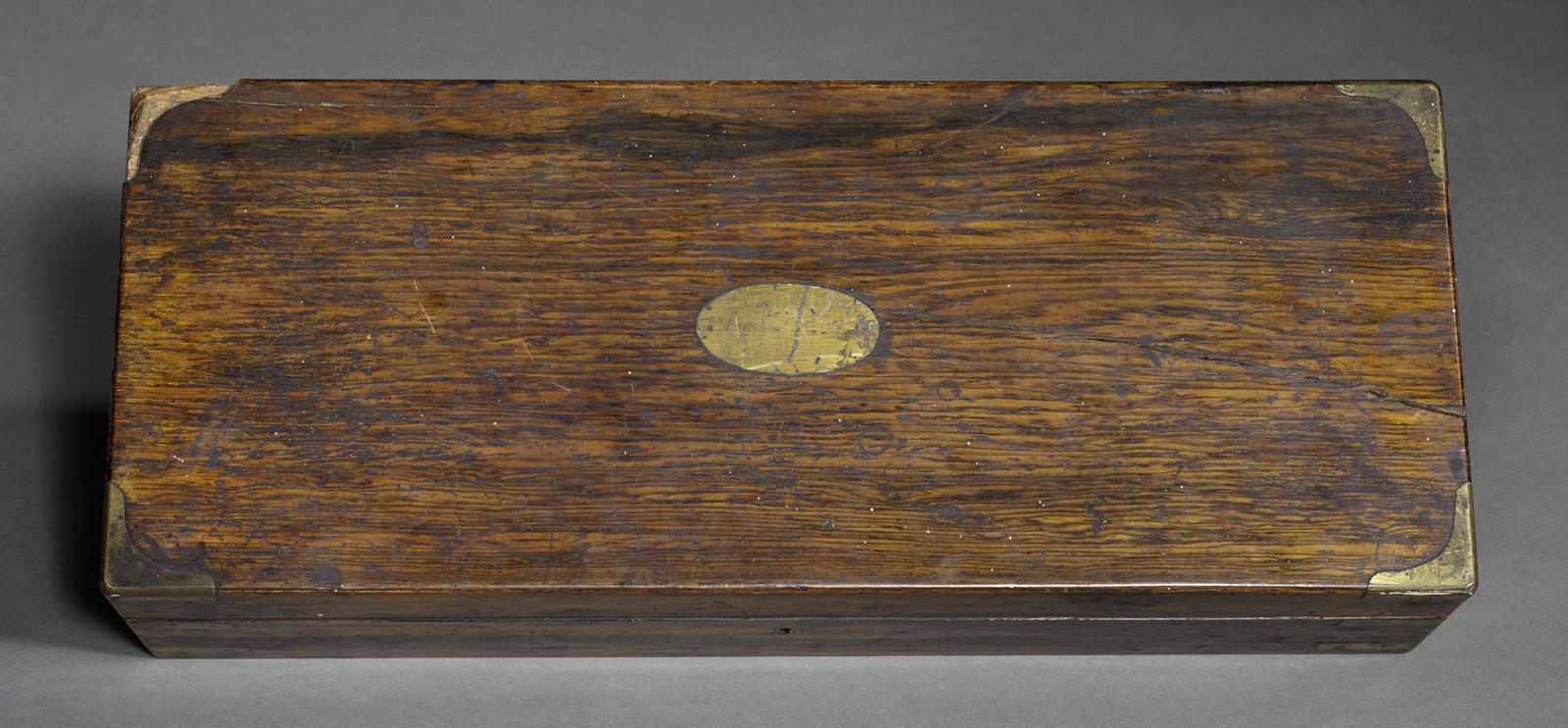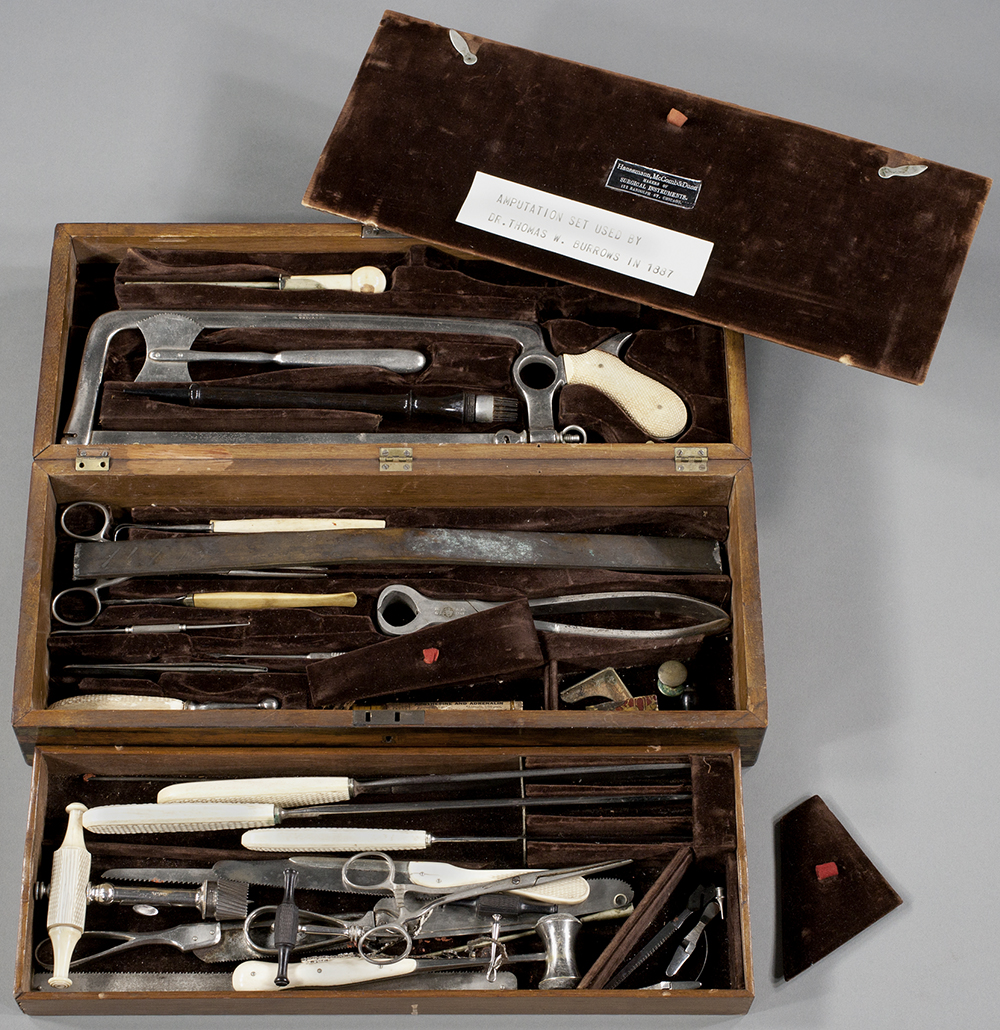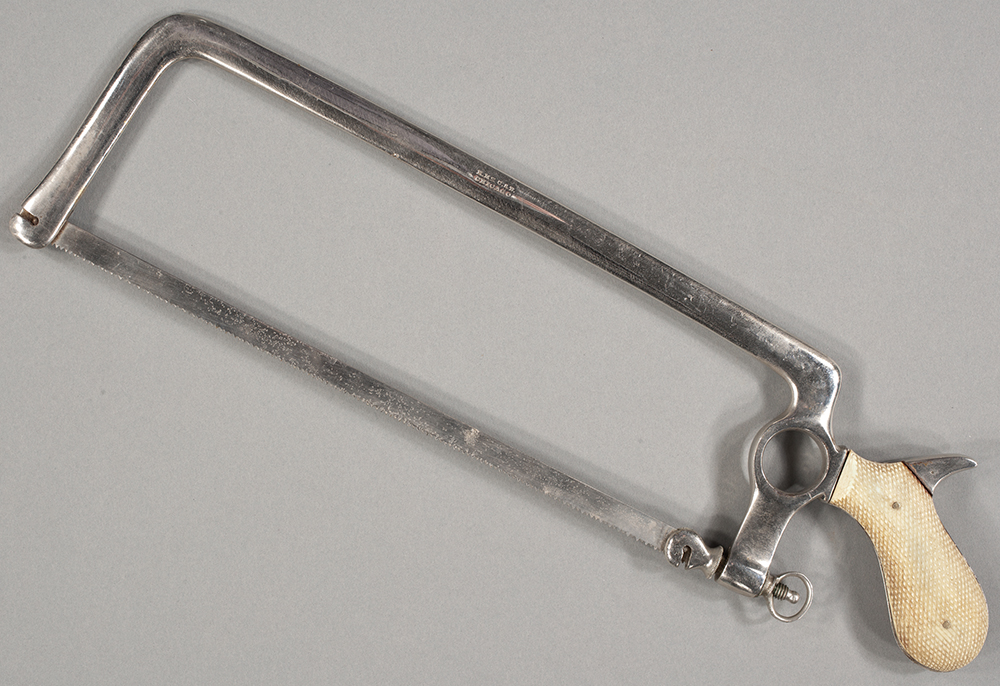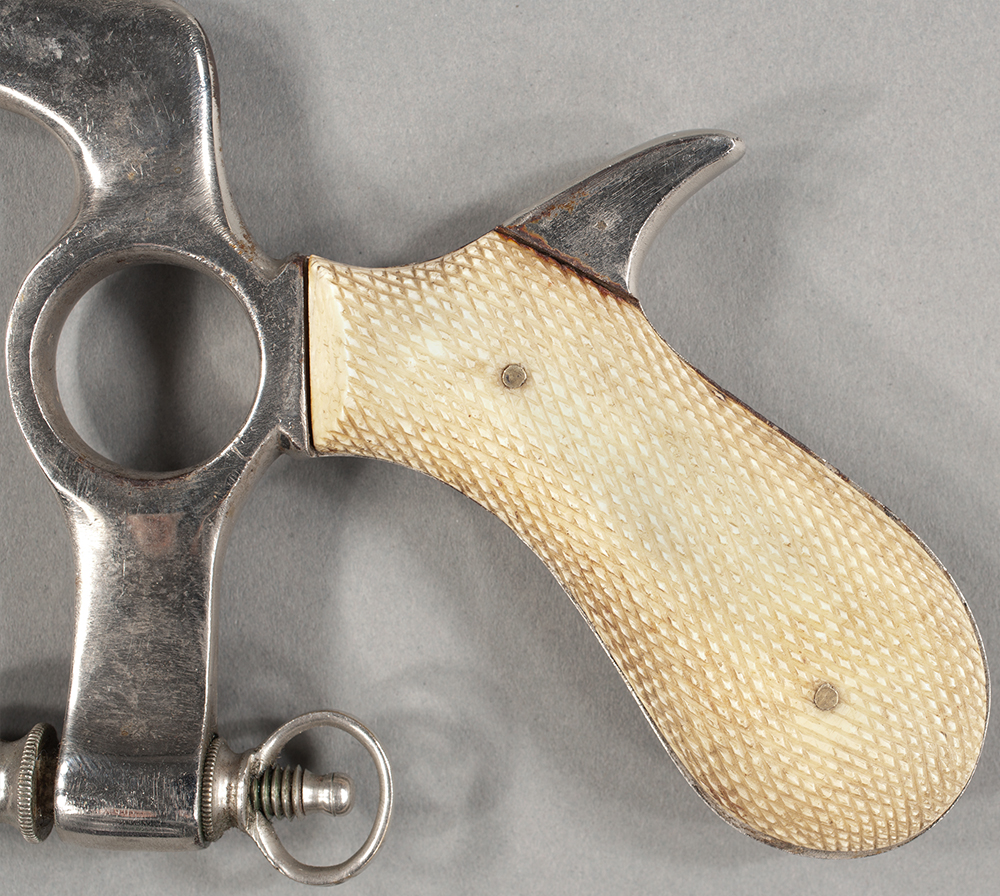
Dr. Thomas W. Burrows surgical kit, 1887. (Photos courtesy Special Collections Research Center)
After 30 years of teaching, professor of medicine Mindy Schwartz acknowledges that a medical education has its highs and lows. Awe-inspiring moments—like the “transformative” experience of dissecting a cadaver for the first time—are interspersed with mundane lessons on treating routine ailments.
So, in search of a spoonful of sugar to make the medical training go down, Schwartz started reading widely on the history of medicine and sprinkling her instruction with stories from the past. In 2001 she decided to teach an elective course for Pritzker School of Medicine students, Invitation to Medical History (“not ‘introduction,’” Schwartz notes, “because it’s not even that grand”).

In 2006 one of her students told Schwartz about the Library’s Special Collections Research Center, where she discovered a surgical kit from 1887. “When you take those tools and you hold them, something happens,” Schwartz says. Handling the equipment awakens a deep sense of curiosity about the doctors and patients who came before her.
Some of the knives and amputation tools are surprisingly similar to what’s used today. But unlike contemporary instruments, which are designed for efficiency and sterility, the 1887 kit boasts craftsmanlike touches: for instance, the bone saw’s mother-of-pearl handle is scored with small notches to provide a better grip.
The Special Collections “field trip” is one of the most hotly anticipated elements of Schwartz’s course. The physicians in training inspect the surgical kit and pore over historical anatomy atlases and old glass slides.
Schwartz hopes that by studying medical history students will see their experiences as part of a continuum. She views medicine as a fitful endeavor, full of progress and mistakes, and her students as part of its complex lineage. “You can look to history for lessons on how to cope and how to understand.”


